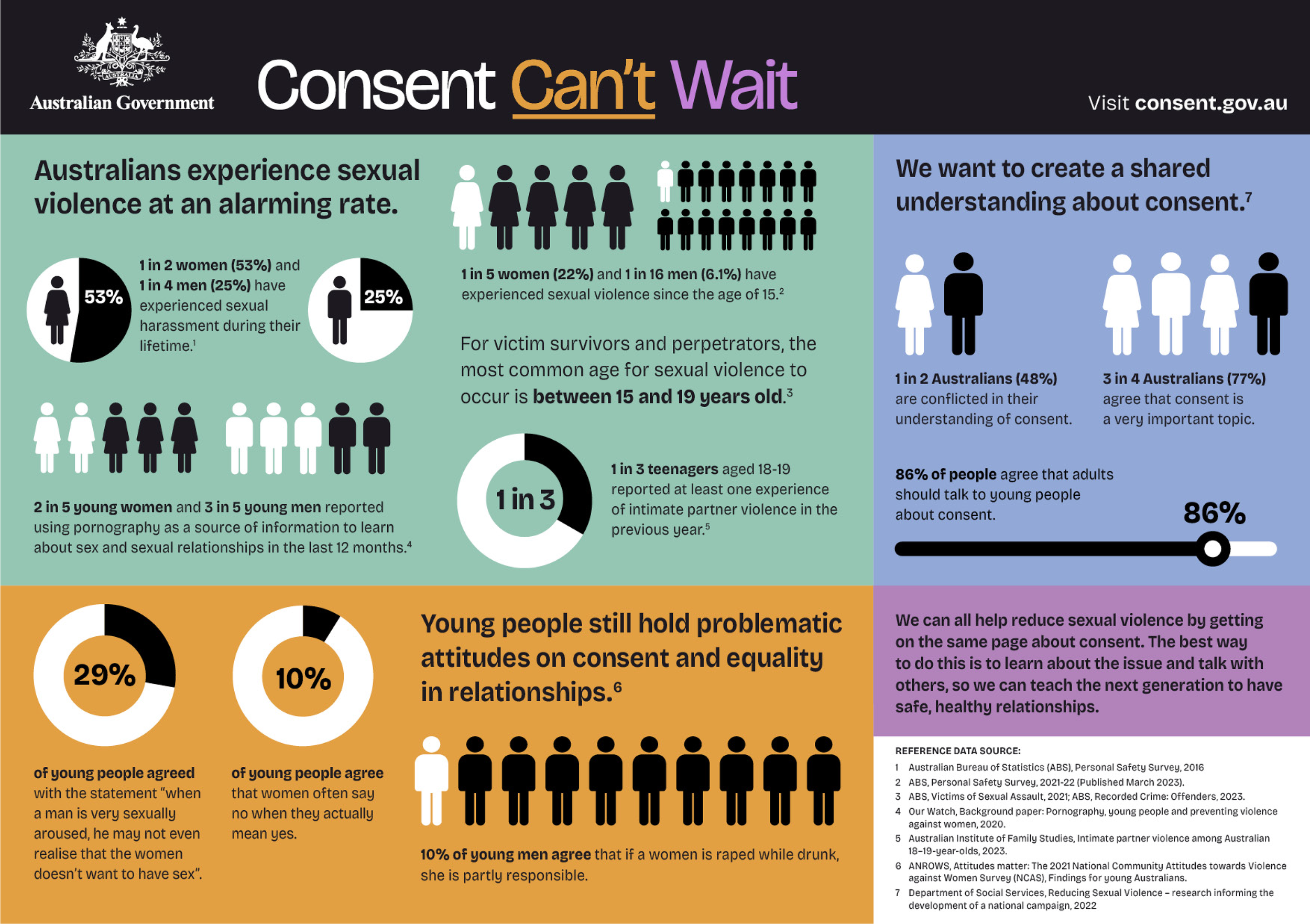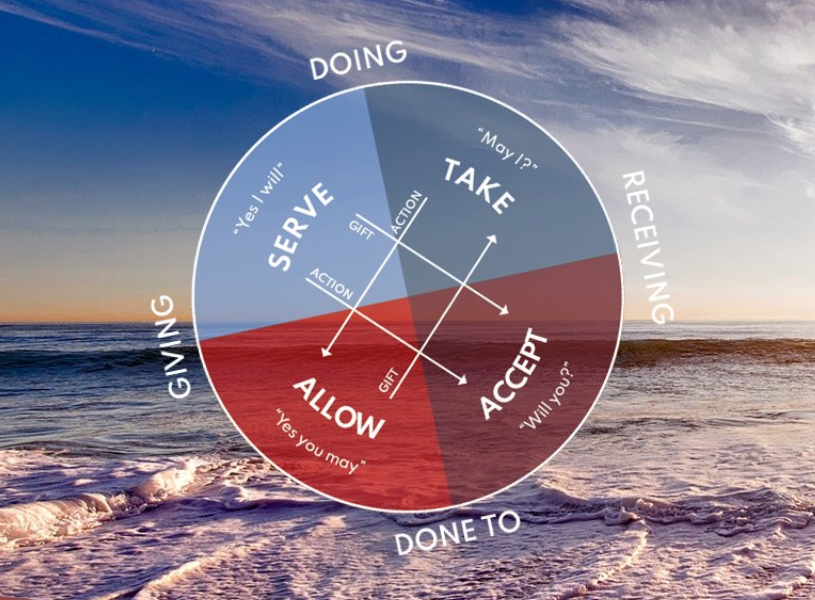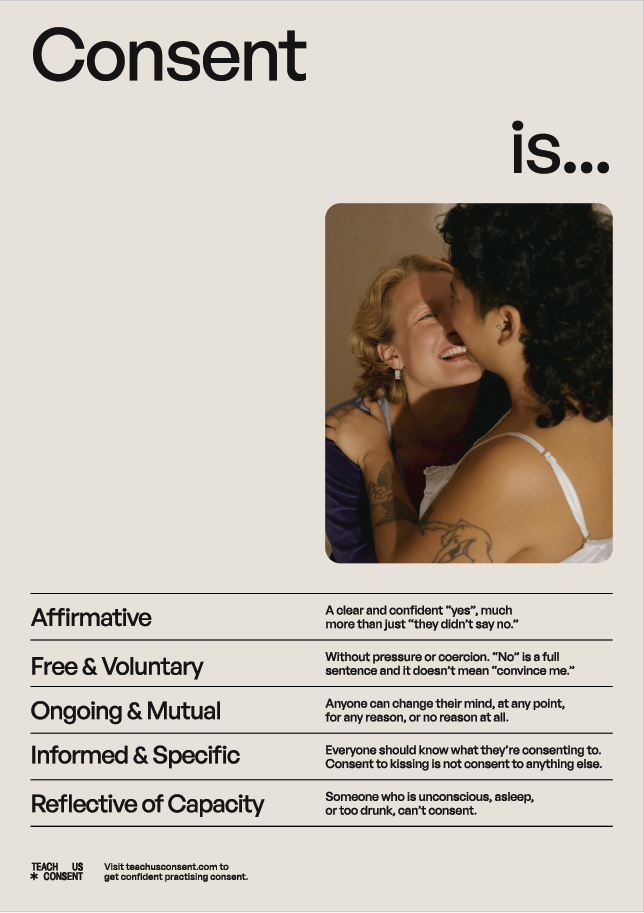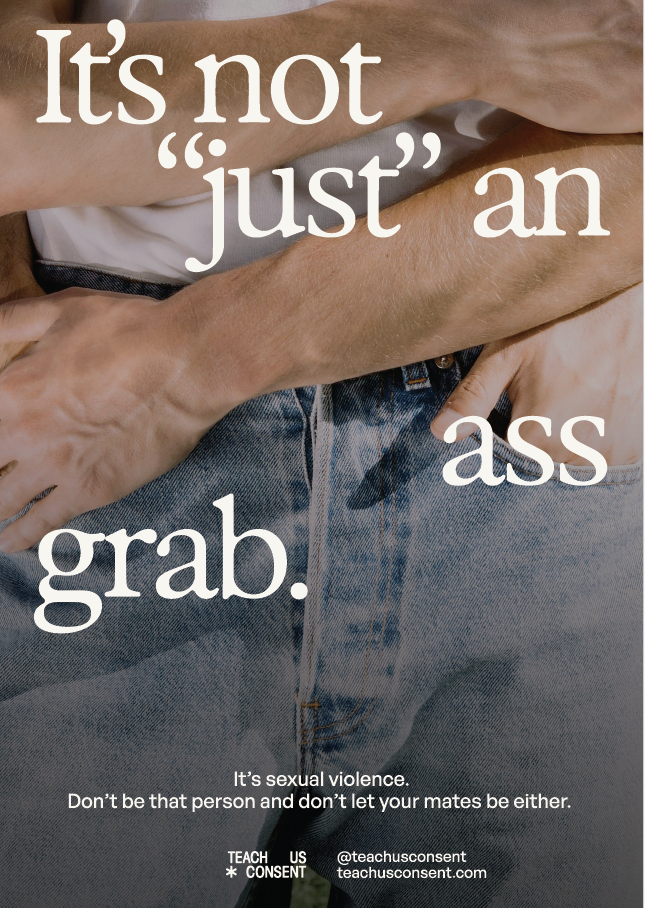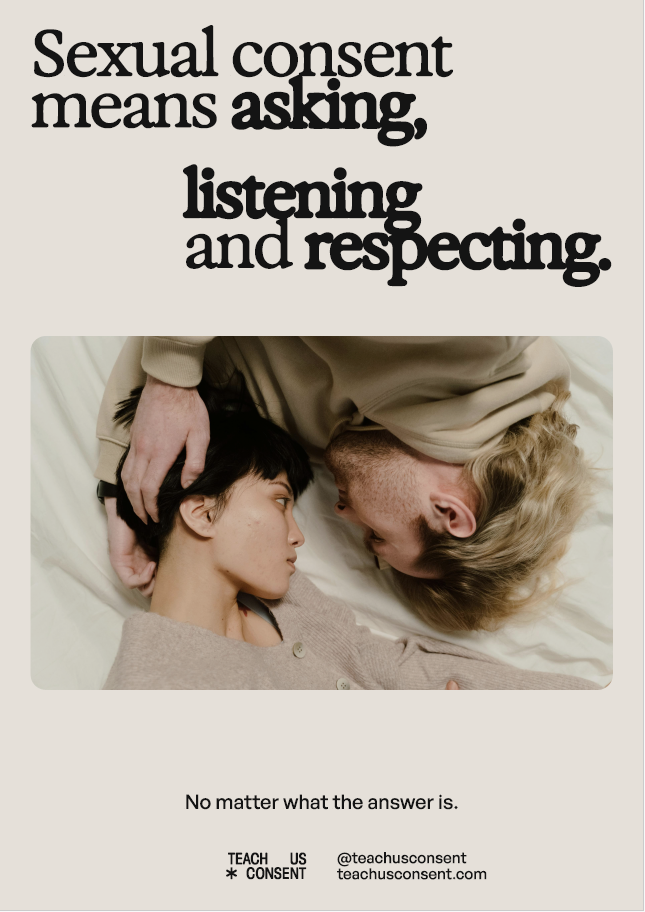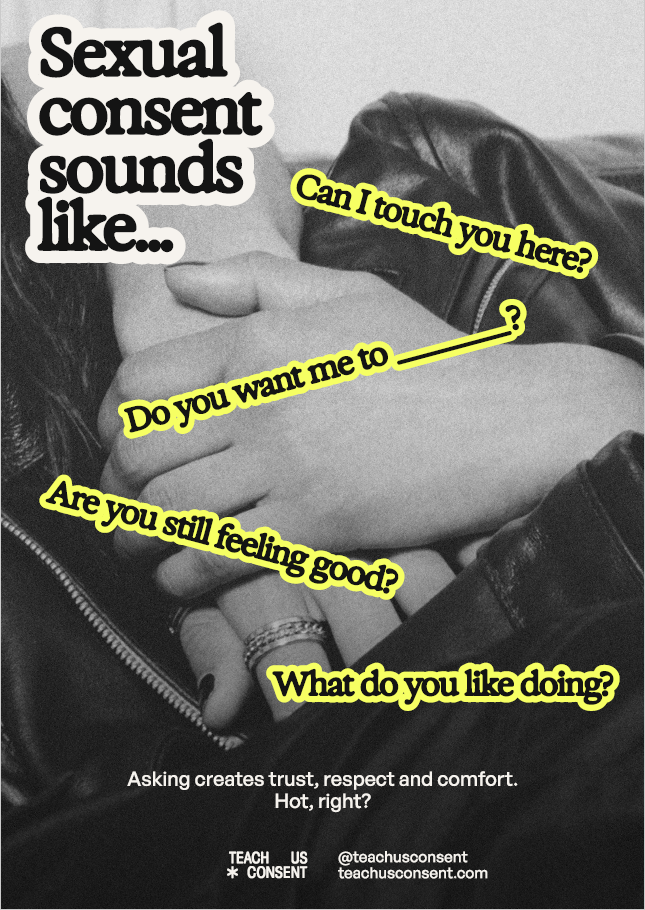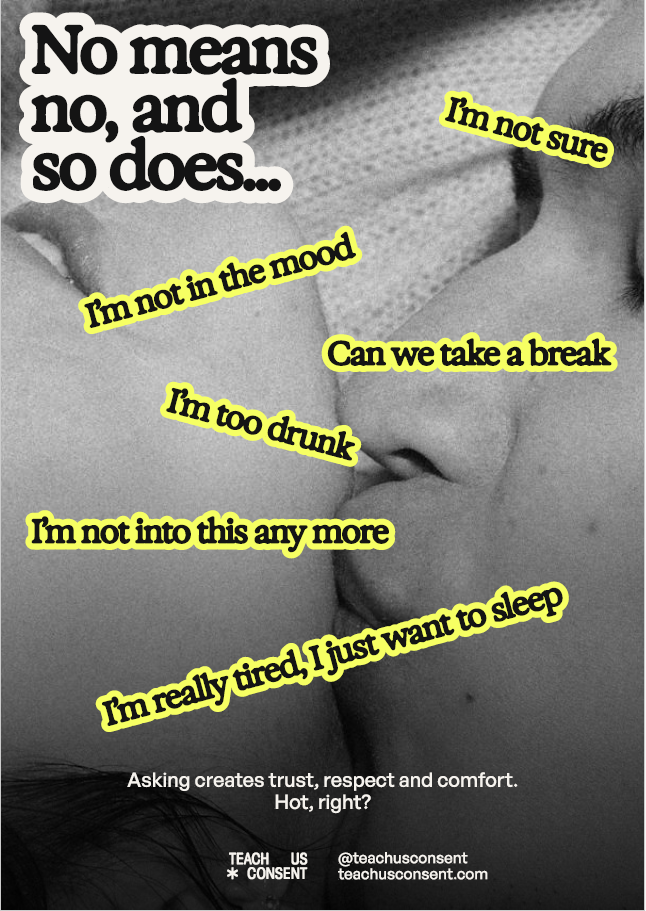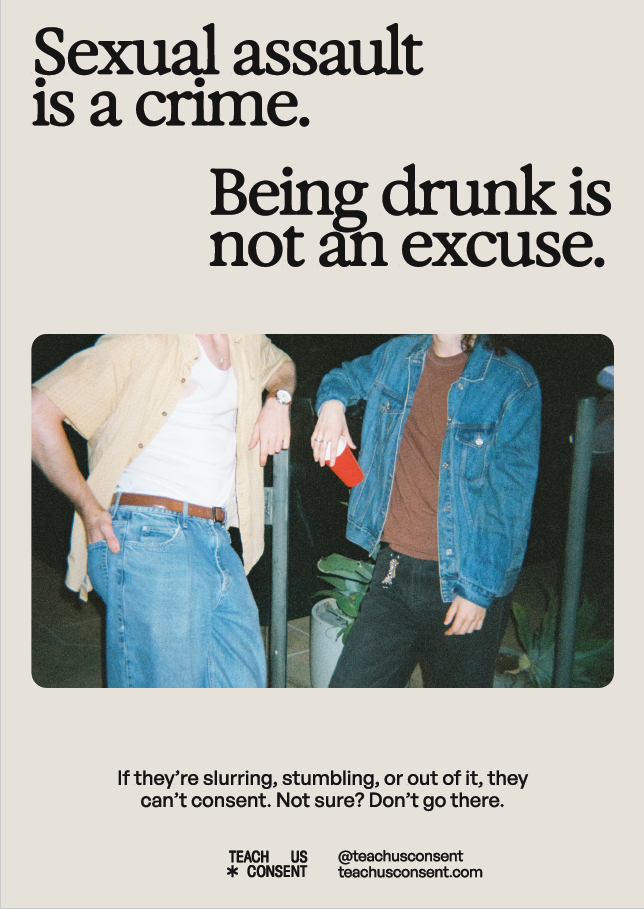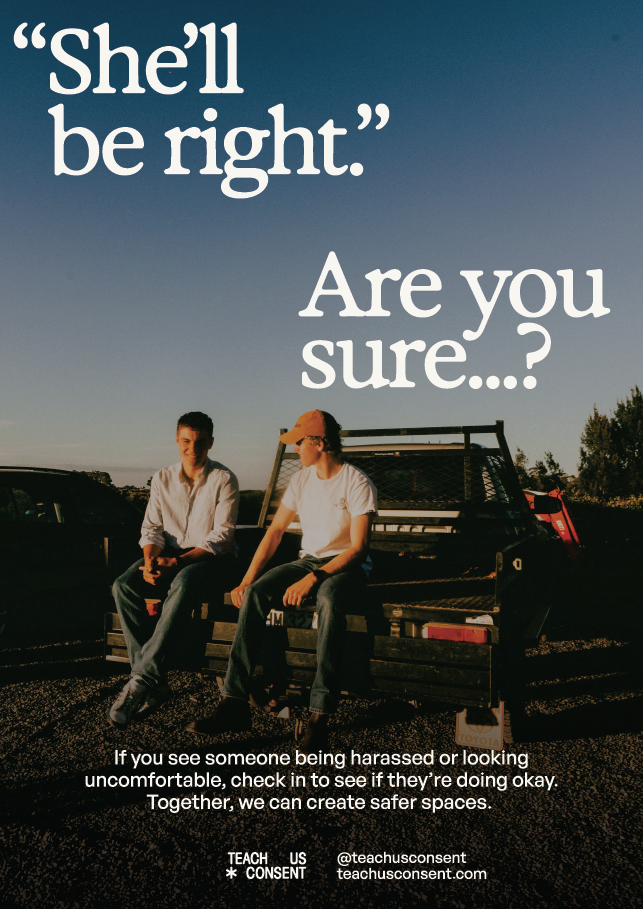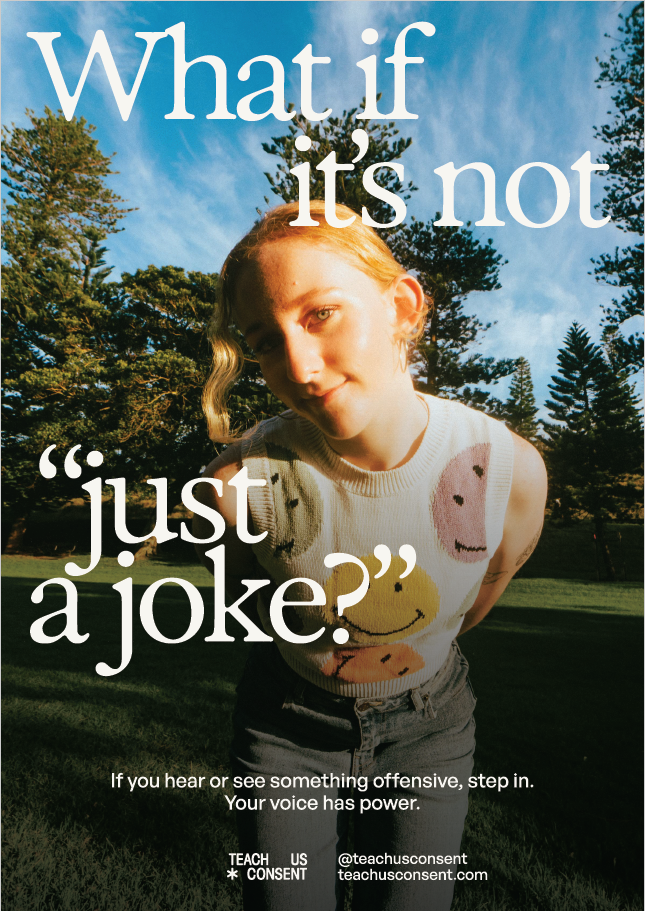Consent Conversations: Behind The Couch
July 2025
Hey there Caddyshackers
Welcome to the 3rd and final part of our special Behind the Couch mini blog series.
Last blog we discussed trans healthcare and the importance of being an ally. This blog post we’ll be discussing topics around consent and sexual violence, so while reading, we encourage you to practice good self-care.
Scroll to the end to see the release of the newest consent resource suite. It’s not one to miss.
Consent On The Couch
Consent is a crucial part of the work we do here at Caddyshack Project, so of course On The Couch includes discussions around consent and in particular sexual consent and consent education.
Dr Axel-Nathaniel Rose, Dr Joy Townsend & Stella Topaz
In his episode on trans healthcare, Axel had a powerful message around consent, particularly medical consent. Axel shares his own personal experiences and allows us a deeper perspective of medical consent, as well as bodily autonomy and ultimately an individual’s voice and choice within the trans healthcare space.
We have also hosted Dr Joy Townsend, Founder & CEO of Learning Consent and Stella Topaz, a sexological bodyworker, erotic coach and sex educator from Abundant Body.
For each of these guests, consent is a huge part of their work. They have all cultivated working definitions of consent based on their own work and practices. Despite each definition being unique, they all resonate with key aspects of consent that connect together.
Consent is Key for Caddyshack
Consent is crucial as it underpins the principles of respect, autonomy, and mutual agreement in interactions between people.
How’s that for a definition!
Consent is about valuing each person’s right to make their own choices and ensuring that interactions are respectful and consensual, which very much aligns with our values.
Consent in the Curriculum
Back in February 2022, federal, state and territory education ministers in Australia unanimously agreed that holistic and age-appropriate consent education would be taught in every Australian school from 2023.
The curriculum is now taught to students from Kindergarten to Year 10 and includes a number of topics that have been lacking in sex education, such as information about power imbalances, gendered stereotypes and coercion.
Consent Can’t Wait Campaign
In May 2024 a National Australian Consent Can't Wait campaign was launched, as an initiative aimed at promoting the importance of consent and respectful relationships.
The campaign addresses the critical issue of sexual violence and seeks to educate the public, especially young people, on the necessity of clear and enthusiastic consent in all interactions.
Consent & The Numbers
It’s important to remind ourselves when having conversations on the statistics, that these numbers represent real people. Statistics can be overwhelming and sometimes we can forget we are talking about real people with real experiences, lives, networks, history and futures.
We encourage our readers to reflect on the actual people these statistics represent, and to think about under reporting and that these statistics are likely underestimate of the reality.
The facts show that Australians experience sexual violence at an alarming rate.
1 in 5 women and 1 in 16 men have experienced sexual violence since the age of 15 (ABS, 2023)
1 in 2 women and 1 in 4 men have experienced sexual harassment during their lifetime (ABS, 2016)
For female victims of sexual assault, the most common age for sexual violence to occur is between 15 and 19 years old (ABS, 2021)
Young men aged 15-19 have the highest offender rates of sexual violence (ABS, 2025)
1 in 3 teenagers aged 18-19 had experienced at least one form of intimate partner violence in the last 12 months (AIFS, 2023)
1 in 12 had experienced sexual abuse by someone they were dating, with sexual abuse being more prevalent among women (AIFS, 2023)
More than 1 in 3 Australian men aged 18-65 years have used intimate partner violence in their lifetime, with emotional abuse being the most common form or intimate partner violence (AIFS, 2025)
What about Image-based Abuse?
We know that image based abuse is an increasing concern among young Australians, with the National Consent Campaign telling us;
24% of young women aged 18 - 24 have had a sexual image posted online or sent without their consent (eSafety Commissioner, 2017)
Nearly 83% of young people aged 14 -18 have reported receiving a sexually explicit nude or nearly nude photo or video of someone else (NSSS, 2022)
59% reported having sent a sexually explicit nude or nearly nude photo or video of themselves (NSSS, 2022)
20% of young people hold problematic attitudes on consent and equality in relationships with a belief that a lot of times women who say they were raped had led the man on and later had regrets (NCAS, 2021)
29% of young people agreed with the statement, “when a man is very sexually aroused, he may not even realize that the woman doesn’t want to have sex” (NCAS, 2021)
The wider campaign goal here is that when consent is well understood, healthy sexual relationships will become the norm, and sexual harm can be prevented.
These statistics paint a very clear picture as to why consent education is so important in the work we do and why we continue to have consent as a key topic area throughout many of our On The Couch episodes.
These issues were also discussed by Professor Kath Albury and Professor Jennifer Power as part of our 2025 series on digital sexual and reproductive health capabilities and the study of sex.
Consent Defined and Framed in Practice
Learning Consent
Dr Joy Townsend defines consent with a definition from an Australian psychotherapist Marie-Pierre Cleret:
“Consent means the choice to say yes to something. A meaningful yes requires the capacity to choose to say no, and to have that no heard and respected at any point in time.”
This is used within the sexual context as a working definition for Learning Consent’s University Programs, including workshops, and Whole-Of-School education programs.
Consent Culture
Axel discusses and defines the term Consent Culture, coined by Kitty Stryker. Kitty is a self-described published author, anarchist activist and queer femme. Axel states:
“It's basically a broad culture, in which everyone works towards prioritising consent as part of everyday life. It is just a culture in which people are putting energy towards consent. It's certainly not limited to sex and intimacy, but any Consent Culture is going to build up greater cultures of sexual consent.”
Wheel of Consent
Stella Topaz practices the Wheel of Consent by Betty Martin. This is a practice of experiencing embodied consent. The Wheel of Consent asks two questions in any exchange of touch and non-touch: Who is doing it? And who is it for? It breaks apart the giving and receiving and asks us to think about the impacts of an action.
Looking at these different definitions next to each other allows us to reflect on how consent is applied in different environments and practices.
Caddyshack Team Reflections on Consent
Working in this space, it was important as a team to reflect on consent for ourselves and how we frame it in our own work.
Bodily Autonomy
We love that all guests On The Couch shared about the importance of bodily autonomy. Bodily autonomy is the right for a person to govern what happens to their body without external influence or coercion. Bodily autonomy is an empowering conversation we can start having with children from a young age, to help them to better understand consent as they grow.
Communicative Approach
We love that Dr Joy Townsend goes beyond just the definition of consent, but also addresses approaches to consent and consent education such as the communicative approach. This approach consists of three areas, with pleasure being number 1, followed by responsibility and communication.
As educators, this really helps to address consent and instead of it always being seen as something that is just lawful, it puts mutual pleasure on a pedestal and we just love what that infers.
Power Dynamics
When Joy talks about implementing the definition within the Learning Consent workshops, she acknowledges that it's not always an equal playing field for people to say yes or no. There are often power dynamics at play in sexual situations so educating people and specifically young people about this, can make consent conversations clearer.
These power dynamics can also include things like age, sexual experience, gender, positions in society, like social privileges, with education, jobs, money etc. For example, there are power dynamics between men and women when it comes to expressing sexuality, often men are praised while women are shamed.
Joy read out the introduction of her PhD about women and sexuality:
“What about objectification? I'm a feminist, but I enjoy being objectified sometimes. Is that wrong? Am I a victim of some of the dominant heteronormative discourses?”
Thought-provoking isn’t it?
Dominant Heteronormative Discourse
Dominant heteronormative discourse refers to the fact that we are brought up to see relationships and sex through a set of societal norms and values, that prioritize and assume heterosexuality as the default or "norm" and what a normal heterosexual couple dynamic is or should be. We also then marginalise or overlook other sexual orientations and gender identities.
Role Modelling Consent, the Ethical Consent Framework & Embodied Consent
Joy talks about how role modelling consent is an effective method of education. At Learning Consent they use actors to perform real life scenarios of consent in workshops with students. They show a sex scene from a TV show to role model what a real consensual sexual experience actually looks like. The scene they use is from the hit TV series Normal People, and shows examples of communicative approaches to consent.
Laura Crozier also talks about her roles as an Affirmative Consent Project Officer and using the Ethical Consent Framework with young people who understand the concept of consent but who are needing to put it into practice.
This also makes us think of the episode with Stella Topaz, and her work in embodied consent using the Wheel of Consent mentioned earlier. Like Joy, Stella reinforces the importance of consent by role modelling it in her practice. As a sexological bodyworker, Stella talks about one-way touch with her clients and how she uses this as education for her clients to understand and practice consent. Egan Magee talks about this as well in his role as a massage therapist in the episode with Dan Mei Kaplan, which is another fantastic discussion On The Couch.
The practice of “what does consent actually look, sound and feel like” is incredibly important. We love how each of the guests who spoke about consent On The Couch have put it into the perspective of their own work and what fits for their community or participants. They have given great examples of this work in practice, and we can all take something from that.
Putting Consent into Practice
Consent isn’t just about sexual encounters, sure, it’s a baseline for sexual activity that is free of violence and control, but it should be at the core of all safe and healthy relationships regardless of it they are sexual or not. Consent helps to establish those foundations of respect, communication and trust. Words we have heard across many of our episodes.
Like many things in life, learning consent is a skill, and one we can be working on from a young age.
In Axel’s episode, he gave a great example around young children and consent. Often young children are encouraged to hug extended family members or friends, and honestly, they just may not feel comfortable with that type or level of touch. Sure, we want them to connect, but there are other ways to do that. Ask the child and offer alternative such as a high 5. This allows the young person to process their feelings, what is it that they desire or want in that moment, and they can then communicate their preference either through word or action. This is consent in its earliest form.
Hearing Axel refer to boundaries and reflecting on teachable moments, made us think on how we teach consent in our sexual health education sessions. One of our favourite teachable moments around consent is the use of the FRIES acronym, which stands for Freely given, Reversible, Informed, Enthusiastic & Specific.
Keep Learning & the Conversations Going
We love how each guest really advocates for the individual to further recognise consent in everyday life, how our actions impact others and that we have rights. Whether that be sexual, medical, mental and/or physical, advocating for rights and consent in this context is crucial. We also love how so many episodes of On The Couch focus on consent within broader conversations.
Keep learning!
We’ve introduce a whole lot of concepts here, so we highly recommend having a listen to the On The Couch episodes mentioned in this blog post and furthering your own research through other avenues.
Book Recommendations
A book that many of us have read, and probably multiple times is Consent Laid Bare by Chanel Contos.
We also recommend reading Legitimate Sexpectations by Katrina Marson. Katrina will be joining Caddyshack Project On The Couch later this year. Registrations are open, so get your free ticket to be part of the live online audience here.
We also highly recommend the book Welcome to Consent by Dr Melissa Kang and Yumi Stynes (specifically for 11-14 years olds), Teaching Consent by Jane Gilmore and of course Ask: Building Consent Culture and the accompanying workbook by Kitty Stryker.
Resource Recommendations
Our friends at Play Safe Pro have developed a factsheet titled: Beyond yes and no: How to navigate conversations about consent with young people. It all ties back into the Consent Can’t Wait National Campaign and the importance of not delaying these conversations.
We encourage you to check out some of our fave websites on consent such as Learning Consent, Consent Labs , Teach Us Consent, and the National Consent Campaign where you can find conversation guides, a community kit and a resource hub.
We wrote this blog post to collate our thoughts and share around conversations we are having about consent. And as we review our final blog post and go to click publish, the Teach Us Consent suite of resources launched. Talk about good timing!
Scroll through some of the posters below and check out their blog posts, podcast episodes, reels, documentaries and newsletter on their website.
We invite you to continue these conversations within your circles, engage further with this content and connect through our social media channels, website, future On The Couch episodes, blogs and emails.
Thanks for joining us in our Behind The Couch mini-series, as we have reflected over the past episodes of On The Couch. We look forward to future discussions and encourage you to register to join us for remaining episodes of 2025.
Until next time
Peace, Love, & Protection

